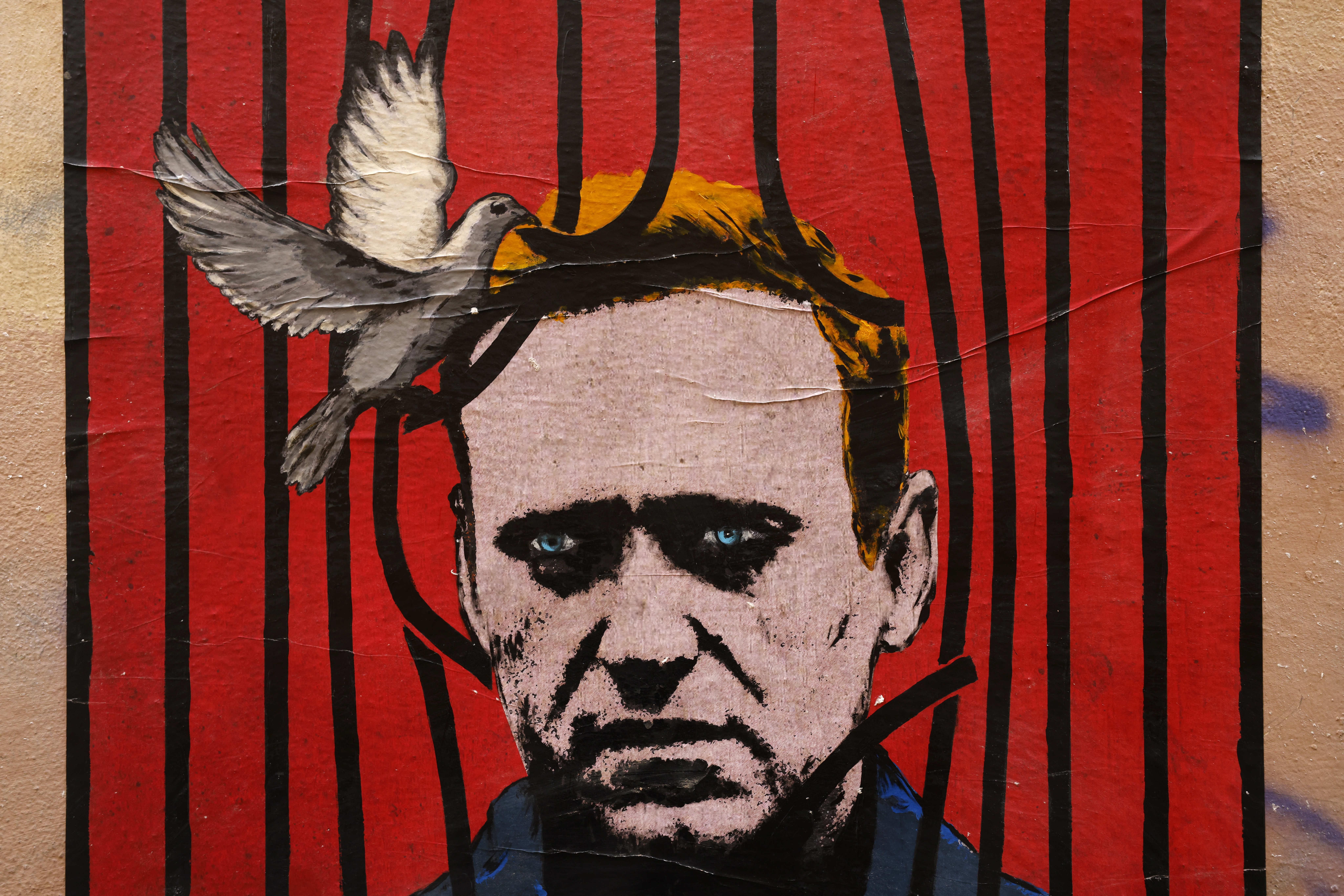Over the weekend, some 40,000 people in Moscow and thousands more across Russia braved subzero temperatures to turn out in the streets in support of imprisoned Kremlin critic Alexei Navalny. More than 3,000 protesters were arrested, and Navalny called on his followers to prepare for more action in the coming weeks.
But just who is Alexei Navalny, and how significant is the threat that he may pose to Vladimir Putin's stranglehold on power in Russia?
A longtime thorn in Putin's side. Navalny, 44, is a prominent and charismatic anti-corruption crusader with a penchant for social media. He made his mark on Russian politics ten years ago, when he led tens of thousands of people in protests that began over election fraud and corruption but morphed into a broader outcry against Putin.
Since then he has remained a key player in the opposition to the current regime, often publishing exposés detailing corruption among elites close to Putin or the president himself. In 2013, he came in second in the race for mayor of Moscow, getting 27 percent of the vote. A year later he was convicted of graft in a trial viewed as politically motivated, and in 2017 he was briefly detained for protesting against the astonishing wealth of then-PM Dmitri Medvedev.
Last year Navalny was poisoned with a rare Soviet-era nerve agent in an assassination attempt that he and independent observers say was carried out by state security agents. After recovering in Germany, he returned to Russia this week — knowing he'd be arrested upon arrival.
Popular… for some. Navalny has struggled in all his attempts to run for elected office because his support is strongest among urban and younger Russians. Overall, only about 20 percent of the wider population agree with him, and 50 percent oppose his actions. What's more, half of Russians believe his poisoning was either a hoax or that it was carried out by the West.
So, why does he worry Putin? For one thing, Navalny is laser-focused on an issue that affects all Russians — corruption — and has a knack for getting his message out. That can help him broaden his base beyond the the laptop-toting "creative" urban class, and potentially unify Russians from all walks of life across 11 time zones.
As for his other politics, Navalny often takes positions that many in the West would characterize as nationalistic, yet are quite popular in Russia. He defended Russia's invasion of Georgia in 2008, the illegal annexation of Crimea in 2014, and in the past made disparaging comments about Central Asian migrants.
Is this time different? The 2011 protests petered out largely because Navalny then lacked strong support outside of Moscow and St. Petersburg. However, in recent years anti-Putin rallies have increasingly taken place in a host of mid-sized cities, including in remote parts of Siberia.
With Putin — now in his 21st year in power — showing approval ratings near all-time lows (by his own standards) ahead of Duma elections this fall, Navalny has a window of opportunity to raise the stakes. After all, Putin has cleared the way to stay in power until 2036 if he wants.
But let's keep things in perspective. While Navalny's level of support is rising, it's not (yet) enough to pose an existential threat for Putin. Russia's president is not as popular as he once was, but still enjoys an approval rating of more than 60 percent, controls a massive and loyal security apparatus, and has brought the entire business elite to heel.
Navalny's challenge is to put enough people on the streets to scare Putin's cronies and security men into thinking twice about continuing to support him — no easy feat in a country where political apathy is widespread, and fear of 1990s-style instability is real.
The next big test for Navalny will come at Sunday's protest. The turnout will determine his immediate fate as Putin's nemesis.Note: Story corrected to reflect attendance of protests outside Moscow.
